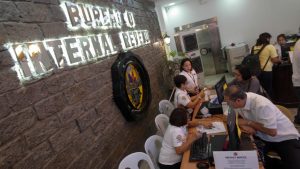
ESCAP calls on PHL to streamline VAT processes, enhance tax compliance
THE Philippines needs to streamline its value-added tax (VAT) system and enhance tax compliance to reduce fiscal risks, according to the United Nations Economic and Social Commission for Asia and the Pacific (ESCAP).
“What the government can do is to close the tax collection gap, which not only mobilizes additional fiscal resources, but over time, helps to reduce fiscal risk,” Vatcharin Sirimaneetham, ESCAP’s macroeconomic policy and analysis chief, said at a briefing.
Taxes account for around 60% of total government revenue in Southeast Asia, according to ESCAP.
The Bureau of Internal Revenue failed to hit its P2.64-trillion revenue target last year, collecting only P2.53 trillion.
In its Economic and Social Survey of Asia and the Pacific report, ESCAP noted that countries like Philippines don’t need to raise tax rates to improve collections.
“While mobilizing fiscal resources for development purposes relies on adequate tax revenue collection, being able to tax more does not always mean taxing better, and tax policies often have to balance between different and sometimes conflicting policy objectives,” it said.
Findings of the report showed that VAT collection efficiency was “substantially below regional and global averages” in the Philippines, Armenia, Sri Lanka and Turkey.
Corrupt and inefficient governments were also advised not to rely on taxes from the private sector and households, citing taxpayers’ burden.
To encourage tax compliance, governments should be more transparent about where revenue is spent, Mr. Sirimaneetham said.
Higher income levels, more state spending on education, and reduced inequality and corruption help raise tax compliance, according to the ESCAP report. — Beatriz Marie D. Cruz



